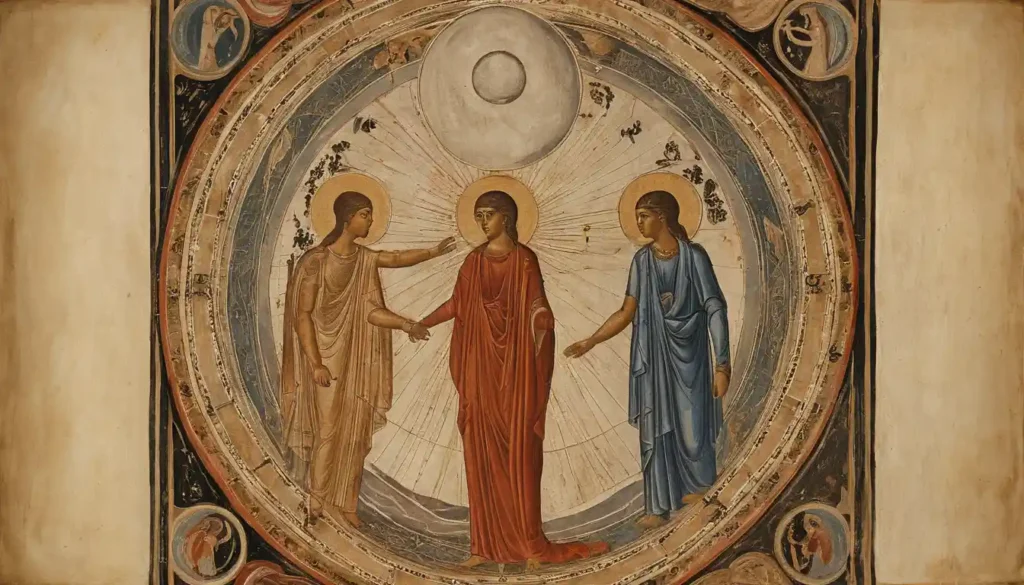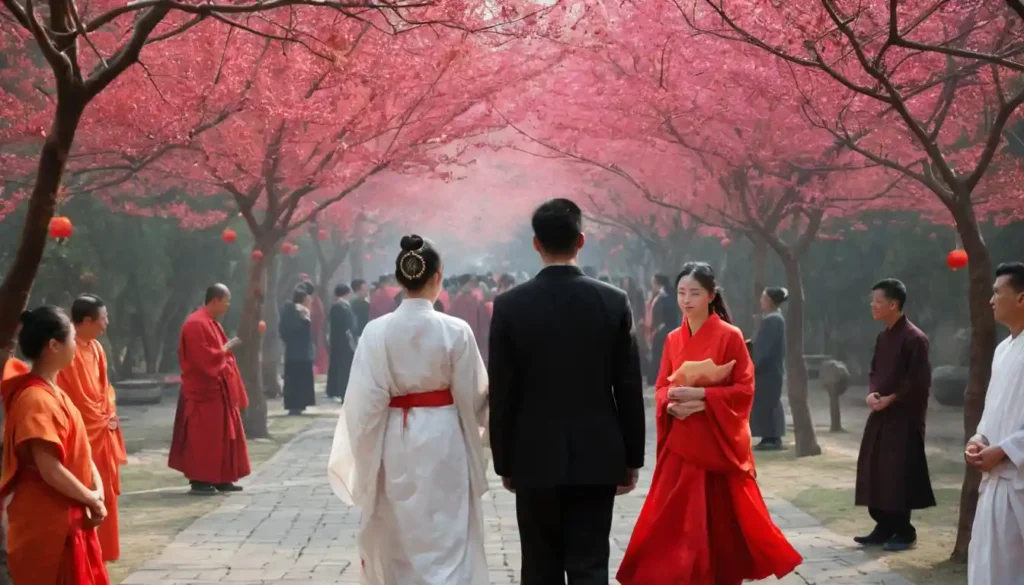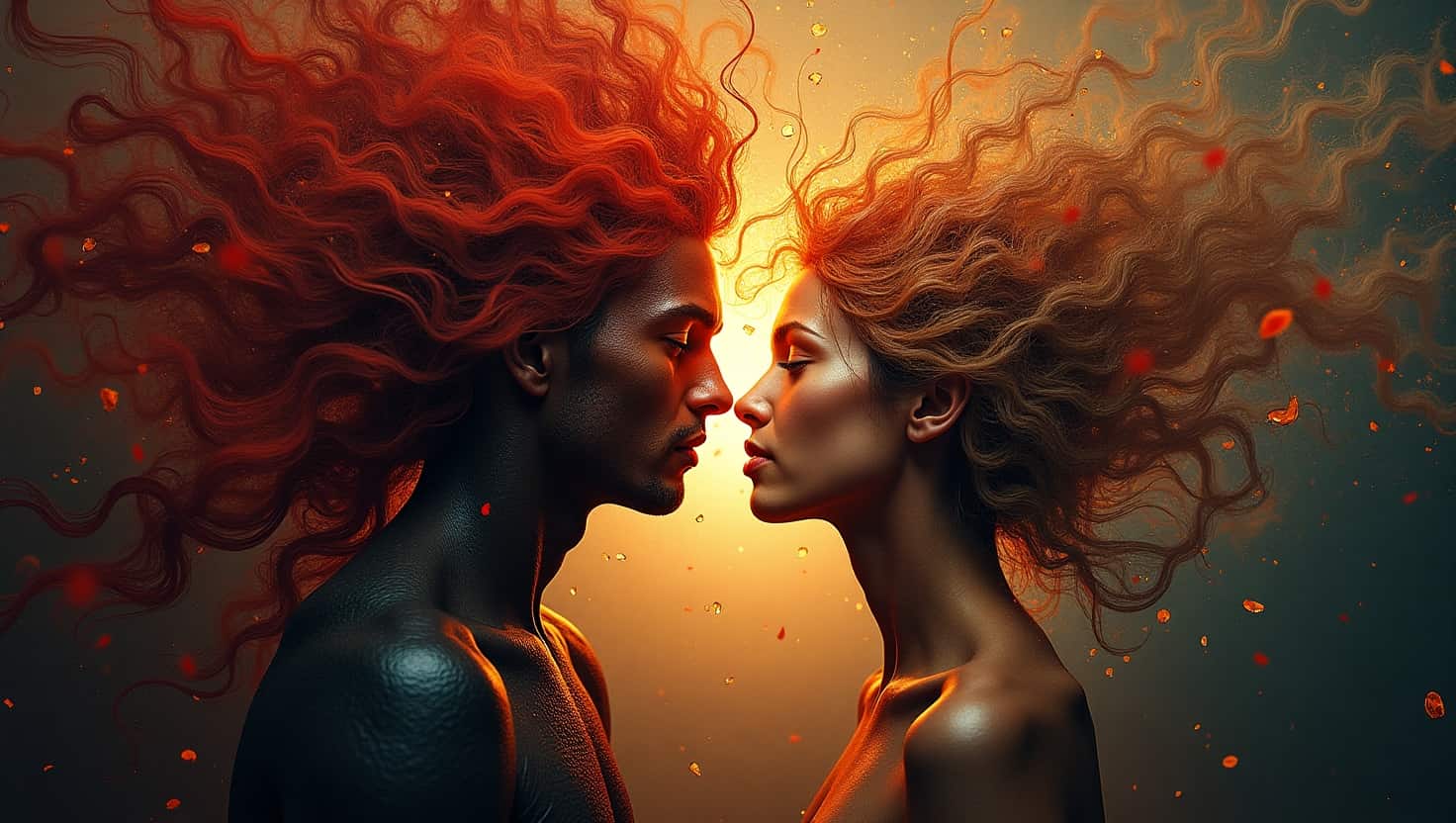“Erothtos” is the deep connection I’ve experienced in meaningful relationships, where love transcends the surface and blends passion, vulnerability, and authenticity. Embracing this bond has deepened my understanding of true intimacy and the beauty of genuine connection.
“Erothtos” represents a deep, intricate emotional experience of connection, transcending traditional love and encompassing longing, desire, and beauty. It is about forming meaningful, profound human bonds that go beyond the superficial.
We’ll uncover the complexities of “erothtos” and its profound influence on human connection. From history to modern psychology, we’ll highlight how this emotion shapes relationships and intimacy.
What is Erothtos? – Explore Erothtos Now!
“Erothtos” is a term rich with depth and layers of meaning. While it may not be commonly known today, its essence lies in the exploration of human emotions and connections. Originating from ancient languages, it encapsulates concepts of love, passion, and longing. Unlike modern love terms, which tend to be confined to specific categories, erothtos embraces the fluidity and complexity of human emotions.

By understanding this term, we gain insight into how different cultures throughout history have expressed love and desire. It’s not just a word; it represents a shared, universal emotional experience that connects us across time and space.
What Are the Ancient Roots of Erothtos?
Ancient Origins of Erothtos
Ancient Origins of Erothtos: The term “erothtos” traces back to Greek and Roman cultures, where love was a multi-faceted concept beyond simple attraction. It represented emotional, intellectual, and spiritual connections, emphasizing a holistic sense of attachment.
Erothtos in Mythology and Ancient Culture
Erothtos in Mythology and Ancient Culture: Greek myths featuring figures like Eros and Aphrodite highlighted the complexities of love, paralleling the bittersweet nature of yearning.
Roman poets like Ovid explored love, loss, and the tension between desire and fulfillment, forming the foundation for “erothtos” today.
The Historical Roots of Erothtos
Erothtos traces its origins back to ancient civilizations, where it was a key theme in art, poetry, and storytelling. Cultures like those of Greece and Rome frequently explored love and passion through myths and epics. The concept likely emerged from these traditions, reflecting how people dealt with emotions and connections.
For example, Greek mythology often depicted characters grappling with eros, or romantic love, which resonates with the broader ideas of erothtos. Roman poets like Ovid also delved into themes of longing and passion, mirroring the complexities central to it.
These historical roots highlight how emotions have deeply influenced human societies throughout the ages.
The Philosophy of Erothtos: Exploring the Depths of Love Beyond Romance
Philosophical Foundations of Erothtos
The concept of “erothtos” is rooted in classical philosophy, especially in Plato and Aristotle’s works, where love is seen as more than physical attraction. Plato viewed love as a pursuit of truth and beauty, while Aristotle connected it to human flourishing and mutual respect.
Together, they expand “erothtos” beyond romantic love to encompass emotional, intellectual, and spiritual fulfillment.
Existential and Contemporary Perspectives
The concept of “erothtos” has evolved with modern existential philosophers like Sartre and Kierkegaard, who saw love as a paradoxical force that both liberates and confines.
Today, contemporary thinkers highlight its fluidity, viewing “erothtos” as much about self-discovery as emotional connection. Embracing vulnerability and authentic expression helps form deeper, more meaningful bonds.
Read also: HopTraveler.com – Your Ultimate Travel Companion
How Has Erothtos Been Represented in Literature and Art?
Literary Representations of Erothtos:
- In ancient literature, writers like Homer and Sappho explored themes of longing and unrequited love. Homer’s The Iliad and The Odyssey depicted the agony of passion and the complexities of human relationships.
- During the Middle Ages, Dante Alighieri’s The Divine Comedy portrayed love through a spiritual lens, particularly in his depiction of Beatrice, which reflects “erothtos” as a transcendent, divine force.
- Modern writers such as Gabriel García Márquez (Love in the Time of Cholera) and Milan Kundera (The Unbearable Lightness of Being) continued to explore the complexities of love, blending passion with philosophical depth, offering dynamic interpretations of “erothtos.”
The Role of Art in Expressing Erothtos
Art has long been a medium for expressing love and passion, from ancient Greek sculptures to Renaissance masterpieces. Botticelli’s The Birth of Venus and Titian’s Venus of Urbino explore beauty, desire, and emotional depth.
These works show that “erothtos” is not just an aesthetic experience but a profound emotional journey at the core of human existence.
Read also: The King’s Roses NWBKA – A Complete Guide
The Cultural Significance of Erothtos: Exploring Global Perspectives on Love and Connection
Eastern vs. Western Views of Erothtos
- Western cultures emphasize individual connection and romantic love, often idealizing and romanticizing it.
- Eastern philosophies, such as Buddhism and Taoism, view love as a force of balance and harmony, suggesting it should be experienced with equanimity rather than clung to.
- Despite cultural differences, the concept of “erothtos” remains a universal experience, with Western thought focusing on personal connection and Eastern thought intertwining love with spiritual growth and personal transformation.

Global Celebrations of Passion
From the exuberant celebrations of love in Western festivals like Valentine’s Day to the more spiritual observances like the Qixi Festival in China, “erothtos” manifests in diverse ways across cultures.
These celebrations highlight both the personal and universal nature of connection—reminding us of the shared emotional experiences that transcend cultural boundaries.
Tips for Beginners to Master Erothtos
Starting your journey in the expansive world of Erothtos can seem overwhelming, but mastering it is as exciting as the adventure itself. Here are some tips to help you get started:
- Focus on the Main Quest: The main storyline serves as both an introduction and a tutorial, guiding you through the world of Erothtos while immersing you in its rich lore. Follow it early for a smoother learning experience.
- Experiment with Skills: Don’t hesitate to explore the skill trees! Trying out different abilities early on will help you find a playstyle that best fits your preferences.
- Engage with the Community: Joining a guild or participating in forums can provide useful gameplay tips and advice. Plus, you’ll form connections with fellow adventurers along the way.
- Use Resources Wisely: Erothtos rewards strategic thinking. Be mindful of how you collect and use resources, as managing scarcity adds an extra layer of depth to the game.
- Take Your Time: There’s no need to rush through the game. Explore side quests, interact with NPCs, and fully enjoy the rich, detailed world of Erothtos.
Erothtos and Modern Psychology: Unraveling the Emotional Foundations of Human Connection
The Science Behind Erothtos
Modern psychology has revealed much about how emotional connections affect the brain and our behavior. The concept of “erothtos” aligns with many psychological theories on attachment, emotional intelligence, and the power of empathy.
Attachment theory, for instance, posits that early bonds formed with caregivers influence how we connect with others throughout life. The feelings associated with “erothtos”—longing, attachment, and deep connection—are deeply rooted in our psychological development.
Emotional Intelligence and Erothtos
Psychologists today emphasize the importance of emotional intelligence (EQ) in forming healthy, meaningful relationships.
“Erothtos” as an emotional state encourages individuals to be self-aware, empathize with others, and communicate openly, all of which are essential for building strong, lasting relationships.
Read also: The 1935 Cuban Ambassador to the Holy See – A Comprehensive Historical Insight
Erothtos vs. Modern Love: How Relationships Have Changed Over Time
| Aspect | Erothtos | Modern Love |
|---|---|---|
| Definition | Deep, passionate connection. | Surface-level, fast-paced. |
| Emotional Depth | Longing, intellectual bond. | Quick emotional highs. |
| Communication | Authentic, meaningful. | Texting, online messages. |
| Commitment | Loyalty, long-term growth. | Delayed commitment, FOMO. |
| Role of Technology | Organic connection. | Dating apps, social media. |
| Love & Philosophy | Spiritual awakening, fulfillment. | Immediate attraction, personal benefit. |
| Challenges | Balancing passion with stability. | Ghosting, social comparison. |
| Cultural Examples | Classic romances, poetry. | Reality TV, rom-coms. |
Erothtos in Media: Exploring Love and Connection in Film and the Digital Age
Erothtos in Movies and TV Shows
The depiction of love and connection in movies and television continues to evolve, with “erothtos” being explored in everything from romantic comedies to serious dramas. Films like

The Notebook and Titanic portray love’s depth and complexity, while others like Her dive into the emotional intricacies of human connection in the digital age.
Social Media and the Changing Nature of Connection
Social media has transformed the way we form emotional connections. Platforms like Instagram and Facebook offer a new dimension to “erothtos,” where people share not only their lives but their emotional experiences.
However, the digital age also challenges the authenticity of emotional bonds, raising questions about the true depth of online connections.
How Can Erothtos Shape Our Relationships and Foster Deeper Connections?
Building Authentic Connections
To embrace the essence of “erothtos,” individuals must focus on authentic communication, vulnerability, and emotional transparency. These elements are foundational for cultivating meaningful relationships that go beyond surface-level interactions.
Practices for Embracing Erothtos
- Active Listening: Truly hearing someone’s words is the first step toward building emotional connection.
- Self-Reflection: Regular journaling or meditation can help deepen your understanding of your own emotions.
- Vulnerability: Opening up about your feelings fosters trust and emotional intimacy.
Read also: make1m.com – The Ultimate Guide
Case Studies: Real-Life Stories of Erothtos in Action
1. The Love Story of Frida Kahlo and Diego Rivera
Frida and Diego’s relationship was marked by passion and artistic collaboration, despite its ups and downs. Their bond, though filled with betrayal and hardship, was rooted in intellectual and emotional depth. It showcases how erothtos can evolve into mutual respect, transcending challenges.
2. The Transcendent Connection of Elizabeth Barrett Browning and Robert Browning
Their love flourished through intimate letters and shared intellectual pursuits, reflecting profound emotional and spiritual connection. Even though they faced societal pressures, their bond deepened, demonstrating the power of erothtos to thrive in the face of obstacles. Their poetry became a testament to this rare connection.
3. The Unbreakable Bond of John Keats and Fanny Brawne
Despite Keats’ illness and their physical separation, their love grew stronger through heartfelt letters and shared passion for poetry. Their relationship exemplifies how erothtos can endure and even flourish in the face of hardship and distance, uniting them in spirit.
4. The Story of Viktor Frankl and His Wife, Tilly
During the Holocaust, Viktor Frankl and Tilly’s emotional and spiritual connection kept them tethered. Their enduring love, even in the harshest of times, highlights how erothtos can be a lifeline, offering strength through profound emotional bonds.
FAQs
1. What is the meaning of “erothtos”?
“Erothtos” refers to a deep and complex emotional state that embodies passion, longing, and connection, going beyond just romantic love.
2. How can I apply the concept of “erothtos” to my personal relationships?
By focusing on authenticity, vulnerability, and emotional transparency, you can enhance your relationships and foster deeper connections.
3. Is “erothtos” the same as “eros”?
While “eros” refers specifically to romantic love, “erothtos” encompasses a broader range of emotional experiences, including passion, longing, and emotional connection.
4. How has “erothtos” evolved in philosophy?
From Plato’s pursuit of truth and beauty to contemporary views of self-discovery and vulnerability, “erothtos” has evolved as a multifaceted emotional experience.
5. What role does “erothtos” play in modern psychology?
“Erothtos” aligns with attachment theory and emotional intelligence, emphasizing the deep connections formed through empathy, self-awareness, and emotional bonding.
Conclusion: The Enduring Legacy of Erothtos
Erothtos is a shining example of what can be achieved when advanced technology meets passionate creativity. With its immersive world, player-focused design, and emphasis on community collaboration, it has pushed the limits of what gaming can be. Whether you’re looking for epic battles, captivating stories, or the chance to shape a living world, Erothtos delivers it all. Join this groundbreaking adventure—your legend is waiting.
Read more:





